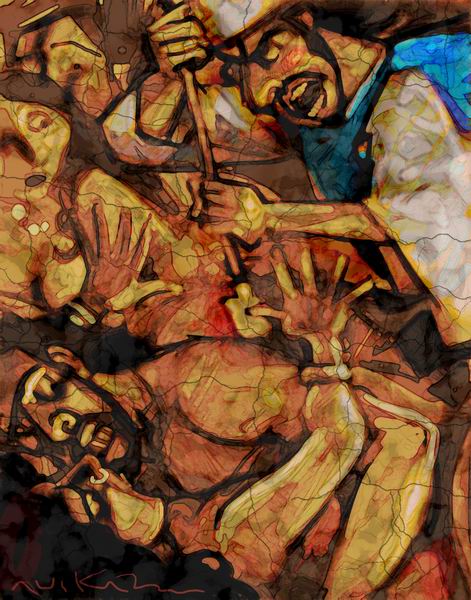In an intriguing New York Times op-ed published in honor the 4th of July, author Sue Fishkoff makes a number of claims about Kashrut and why Americans, Jewish and otherwise, observe it. Like so many observers of American Jewish life however, I suspect her analysis reveals more about the author than it does about either American Jews in particular or America in general.
Fishkoff writes:
One-third to one-half of the food in American supermarkets is kosher-certified, representing more than $200 billion of the country’s estimated $500 billion in annual food sales, up from $32 billion in 1993.
Given that Jews make up less than 2 percent of the population, and most of them don’t keep kosher, it’s clear that the people buying this food are mostly non-Jews. While some consumers probably aren’t aware that their pasta or cookies are kosher, many are folks who believe that “higher authority” promise.
Her numbers are correct, but on what basis does she assert that the “higher authority” promise is the basis of consumers’ decision-making process?
In fact, given the number of products which are kosher certified, and the totally innocuous symbol which indicates that fact, it is far more likely that most people do not even know they are buying kosher food – to them its just food!
Perhaps when it comes to meat products that is less true, though even there a huge proportion of the kosher chicken bough by non-Jews and Jews who do not keep kosher is bought, not because of higher authority issues, but because the meat is already brined. Having been salted and soaked as part of the koshering process, it is more flavorful than an un-brined bird.
Also, describing Jews in the 1970’s as a “largely immigrant community”, as Ms. Fishkoff does, also strikes me as strange. While there was an influx of Jews into this country following WWII, the vast majority of American Jews trace their roots to the mass migration of 1880-1920. Like her assertion about why people buy kosher food, this claim about the collective consciousness of American Jews reflects a sense of difference vis a vis America at large, which most Jews don’t really have.
But like many people reflecting on Jews and Judaism in contemporary America, Fishkoff’s analysis combines assertions about Jewish superiority (or at least desire to see that others views us and our culture, as superior) with insecurity about our place in America. According to this analysis, Jews are both less comfortable, and more positively exotic, that we may realize. The only thing is neither seems to be true.
I appreciate that some Jews are deeply anxious about living in what may be an unprecedented condition in all of Jewish history i.e. living with full equality and normalcy in the Diaspora. And I further understand how preserving the exotic quality of our culture, or at least our hot dogs, may address that anxiety. But as I said, that reflects the writer more than it does those about whom she writes.
This July 4th, I celebrate that Ms. Fishkoff’s perspective is largely a thing of the past for most Jews. I celebrate the opportunity to live at a time when kosher is neither superior nor inferior in most people’s minds, but simply normal. I celebrate that nowhere Jews have ever lived has that been so true. And I celebrate the privilege of being part of the grand experiment which is contemporary Jewish life.
Happy 4th of July!

